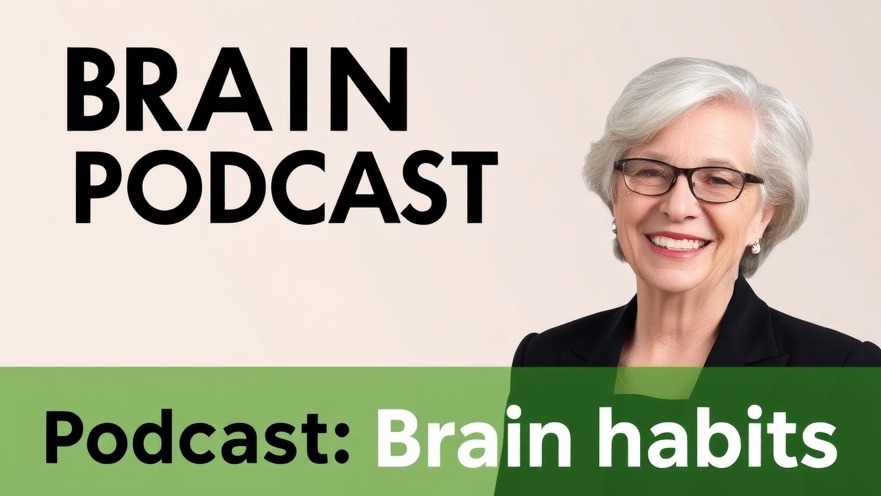
Understanding the Habitual Landscape of Our Brains
Our brains are incredible machines, capable of forming habits that can define our daily lives, aiding us in everything from essential tasks to complex decision-making. In the enlightening short, "The Science of How Your Brain Forms Habits (and How to Take Control)," we learn how habits are not just random actions, but rather neurological pathways shaped by repeated behavior. This understanding can empower us to take charge of our lives, especially for middle-aged and senior adults who often seek effective mental health techniques and routines to enhance their well-being.
In 'The Science of How Your Brain Forms Habits (and How to Take Control),' the discussion dives into the neurological underpinnings of habit formation, exploring key insights that sparked deeper analysis on our end.
Why Habits Matter for Mental Health
The habits we cultivate can significantly influence our mental health. Mental health for seniors is an especially vital topic as it impacts mood, cognitive function, and overall quality of life. Establishing positive habits such as regular meditation, exercise, and effective sleep routines can help alleviate anxiety and depression. However, it’s essential to approach this with an understanding of the science behind it, empowering us to create lasting change in our lives.
Actionable Insights: How to Create Positive Habits
There are several actionable mental health routines that can help in forming positive habits. Start small by introducing one new habit at a time, allowing your brain to adjust without feeling overwhelmed. For instance, try incorporating mental health meditation into your daily routine. Just a few minutes a day can serve as a stress relief technique, reinforcing a positive mindset. Similarly, mindfulness exercises can help counteract anxious thoughts and keep you grounded.
Sleep Routines: The Unsung Hero of Mental Wellness
One crucial habit that is often overlooked is the importance of sleep. Developing a consistent sleep routine can radically enhance one’s mental wellness. Engaging in sleep meditation or practicing relaxation breathing exercises before bed can ensure a deeper and more restful sleep. This, in turn, aids in reducing anxiety and improving overall cognitive functioning, which is especially beneficial as we age.
Building Resilience Through Routine
Our mental health can sometimes feel like a roller coaster, especially for seniors facing transitional life stages. However, building a routine filled with positive habits can cultivate resilience. Whether it’s through developing stress relief techniques or adopting self-care habits like regular exercise, the path to well-being is anchored in consistency. Simple actions like walking, gentle stretching, or even socializing can foster connection and tranquility.
Common Misconceptions About Aging and Mental Health
Many seniors believe that a decline in mental health is an unavoidable part of aging. However, this is a misconception. Engaging in mental health exercises, alongside consistent stress relief practices and maintaining social connections, can significantly uphold mental fitness well into later years. The key lies in understanding that habits can evolve and improve our mental state.
Incorporating Natural Remedies into Daily Life
As part of a comprehensive approach towards mental health, it’s beneficial to explore natural remedies. Essential oils for relaxation, herbal teas for sleep, or even dietary supplements can provide added support in forming healthier habits. By integrating these into your daily routine, you might find enhanced results in terms of emotional well-being and cognitive awareness.
Conclusion: The Power of Positive Habits for Seniors
Ultimately, developing a deeper understanding of how our brains form habits enables us to take control, a crucial insight for seniors aiming to enhance mental wellness and navigate life’s changes. By recognizing the power of positive habits and incorporating practical techniques and natural remedies into daily routines, we can create a cohesive plan to better mental health and well-being.
Take these insights to heart and begin implementing small changes today – they can lead to significant improvements in your mental wellness.
 Add Element
Add Element  Add Row
Add Row 



Write A Comment